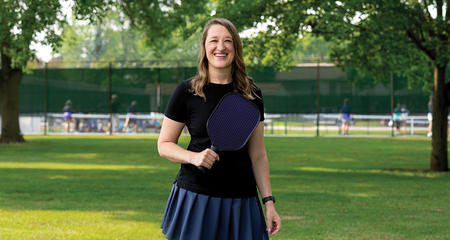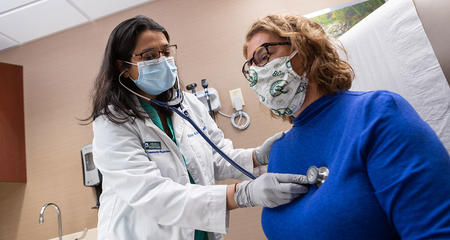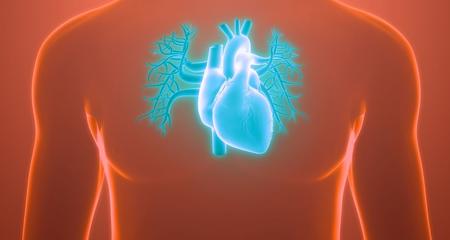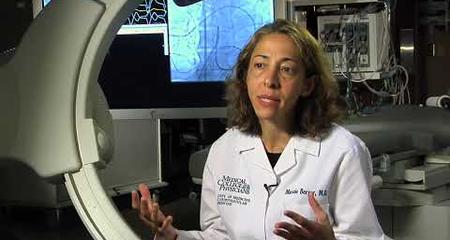Lead extraction removes the leads or the wires that carry the energy from an implantable device to your heart. These devices include pacemakers and implantable cardioverter defibrillators that treat heart rhythm problems.
Why Leads Need to Be Removed
In most cases, the leads from these devices remain in the body permanently with ICD lead failure documented at only 2% in 10 years. Sometimes, however, the leads need to be removed. Reasons for lead extraction include:
- Infection at the lead or device implant site
- Damage to the inside or outside of the lead
- Electrical malfunction of the lead
- ICD or pacemaker device upgrade
You and your doctor will discuss your options to determine if lead extraction is right for you. In some cases, damaged leads can remain in the body when we implant new leads.
If you need lead extraction, you can trust our experts who have years of experience performing these intricate procedures.
Lead Extraction Techniques
Most lead extractions are minimally invasive procedures, using a catheter with a tiny laser or drill-like instrument at its tip that frees the wire from the surrounding tissue.
Our team tailors each lead extraction procedure and anesthesia based on your individual needs.
- If you are at low risk, with leads in place for less than 5 years, we routinely use monitored sedation for the procedure.
- If you are at intermediate or high surgical risk, with leads in place for greater than 5 years and dual-coil ICD leads, we generally perform the procedures under general anesthesia.
If you are having new devices or new leads implanted, we may do this at the same time as the lead extraction. You can expect to stay in the hospital one or two days after the extraction/implantation procedure. If you are just having a lead extraction procedure, you can expect to remain in the hospital for one night and return home the following day.
Lead extraction is a very safe procedure. As with any surgical procedure, however, there are risks to consider. Your physician will discuss any surgical risk specific to your condition.
Expertise in Lead Extraction
The Froedtert & MCW lead extraction team has years of experience is removing leads and is one of a small number of teams across the region to perform these intricate procedures. The team includes experts from electrophysiology, cardiac surgery, anesthesiology and radiology.
Virtual Visits Are Available
Safe and convenient virtual visits by video let you get the care you need via a mobile device, tablet or computer wherever you are. We'll assess your condition and develop a treatment plan right away. To schedule a virtual visit, call 414-777-7700.
More to Explore





